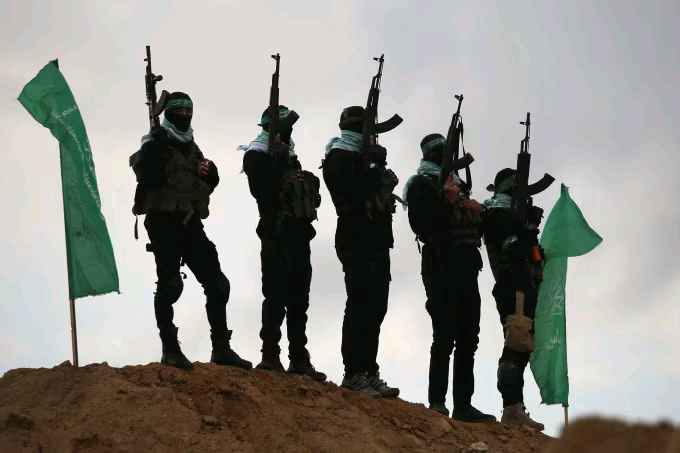Arab States, Entire European Union, and 17 Additional Countries Call on Hamas to Disarm and Relinquish Power in Unprecedented Move

In a historic and unprecedented development, Arab and Muslim countries including Qatar, Saudi Arabia, and Egypt have, for the first time, jointly called on Hamas to disarm and relinquish control of the Gaza Strip. This collective call is part of a broader international effort aimed at ending the ongoing conflict in the territory and fostering a peaceful resolution to the Israeli-Palestinian conflict.
“Beat the Pressure: A Comprehensive Guide to Lowering Blood Pressure Naturally.”
Buy book from Gumroad or Paystack
The declaration, endorsed by the 22-member Arab League, the entire European Union, and 17 other countries, was signed at a United Nations conference co-hosted by Saudi Arabia and France in New York. The conference focused on advancing the Two-State Solution and achieving lasting peace in the region.
Key Points of the Declaration:
- Governance and Security Under the Palestinian Authority
The joint document emphasized that governance, law enforcement, and security across all Palestinian territories should be the exclusive responsibility of the Palestinian Authority (PA), with the support of the international community. It called for Hamas to end its rule in Gaza and surrender its weapons to the PA, under international oversight and assistance. This move is intended to align with the goal of establishing a sovereign and independent Palestinian state. - Condemnation of Hamas’ October 7 Attack
The declaration strongly condemned the deadly Hamas attack on Israel that occurred on October 7, 2023. This condemnation marks a significant shift in the stance of many Arab and Muslim nations, who have traditionally been more reticent to criticize Hamas publicly. - Proposal for International Stabilization Mission
The document proposed deploying a temporary international stabilization mission, under United Nations auspices, to Gaza upon invitation by the Palestinian Authority. Several member states have already expressed willingness to contribute troops to this mission, aiming to stabilize the region and facilitate the transition of power. - Unprecedented Arab and Muslim Collaboration
France, co-chairing the conference, described the declaration as “unprecedented.” French Foreign Minister Jean-Noël Barrot highlighted that this is the first occasion where Saudi Arabia and other Arab and Muslim nations have publicly condemned Hamas’ attacks, called for its disarmament, and expressed interest in normalizing relations with Israel.
Context and Background:
Qatar and Egypt, both key mediators throughout the conflict, maintain communication channels with Hamas and Israel. Earlier in March, Egypt proposed a post-war governance plan for Gaza that excluded Hamas. This plan, discussed during an emergency summit in Cairo, suggested establishing a temporary Palestinian committee to govern the Gaza Strip, with eventual transfer of authority to the Palestinian Authority.
Saudi Arabia continues to advocate for reviving the Two-State Solution, envisioning an independent Palestinian state living peacefully alongside Israel. France has announced its intention to recognize a Palestinian state by September 2025, a stance backed by the United Kingdom, which warned it would do the same unless Israel agrees to a ceasefire. These moves, however, have met with strong opposition from both Israel and the United States.
Hamas’ Response and Regional Implications:
Despite mounting international pressure, Hamas has shown no clear intention of relinquishing control. The group’s leadership has issued conflicting statements regarding its future role in Gaza, maintaining its position as the governing authority.
Israeli Prime Minister Benjamin Netanyahu remains firmly opposed to the Two-State Solution, citing concerns over Israel’s national security. The ongoing stalemate underscores the complexity of the conflict and the challenges inherent in achieving a peaceful resolution.
Significance and Outlook:
This unprecedented joint declaration marks a significant shift in regional dynamics, with Arab states and the European Union aligning on the need to disarm Hamas and restore governance to the Palestinian Authority. The call for international stabilization and oversight reflects a growing consensus that sustainable peace requires credible and unified Palestinian leadership alongside credible security arrangements.
If implemented, the proposed measures could pave the way for renewed diplomatic efforts and progress toward a peaceful, negotiated settlement. However, the success of these initiatives will depend on the willingness of all parties — including Hamas, the Palestinian Authority, Israel, and the international community — to engage constructively and compromise.
As the situation evolves, the international community watches closely, hopeful that this unprecedented coalition can help break the cycle of violence and foster a durable peace in the region.
💔 “She said she loved me. And for fifty-two years, I believed her.” 💔
Buy The Book "The Longest Lie: A Husband’s Journey Through Love, Betrayal, and Redemption" From Gumroad






